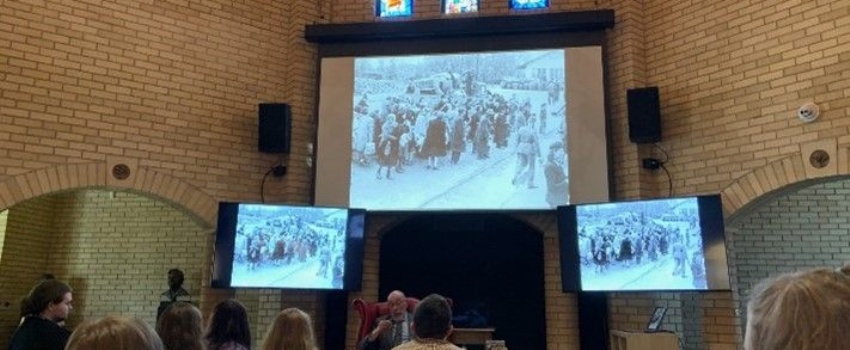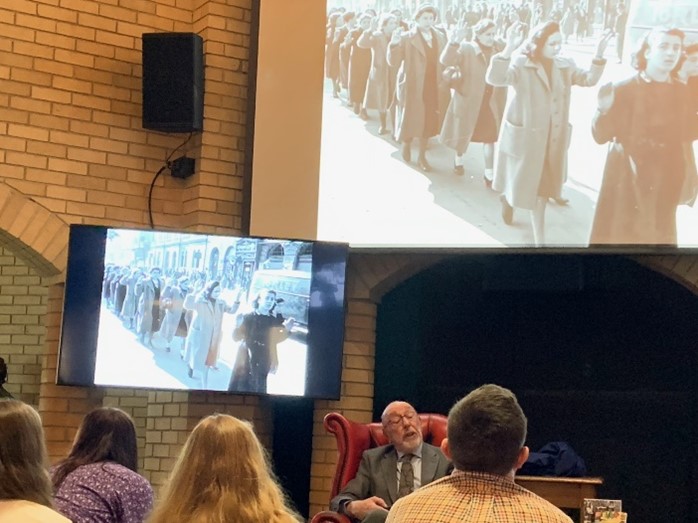History Trip - National Holocaust Museum, Nottingham

On the 15th April 2024, both the Year 12 and Year 13 History classes took a trip to Nottingham to visit the National Holocaust Museum. Upon arrival we were greeted by Charlie, a teacher who specialised in the history of the Holocaust, who worked on behalf of the museum to deliver talks and run workshops. During the first hour, Charlie delivered a brief talk on the historical background of the Holocaust, with a specific focus on the origins of Jewish anti-Semetism; as well as encouraging us to consider why the Holocaust happened and who allowed it to happen. This was incredibly thought-provoking, and encouraged us to evaluate our own understandings and broaden our knowledge that we already have from our A-level history lessons.
In addition, we completed a 40 minute self-guided tour around the Holocaust exhibition, with the aim of developing our knowledge of what happened, with a focus on how ordinary people’s lives were affected by history. The exhibition contained a collection of artefacts, videos, photos and information about life in Nazi Germany and the development of the Holocaust, set out in chronological order to show the progression of the ‘Final Solution’.
This was followed by two workshops lead by Charlie, which focussed on what being Jewish means to those in modern society, as well as reflective videos on what Holocaust survivors believed about their own Jewish heritage. This was extremely important in supporting and reminding us of the freedom we have today to express our own identities, in comparison to the oppression Holocaust survivors and the 6 million who lost their lives previously faced.

Finally, we were given an emotive talk from Holocaust survivor John Dobai, who relayed his and his family’s story of how they were personally affected whilst residing in Hungary. He highlighted the humiliation he felt when having to wear a yellow star and having to step into the gutter if a non-Jewish person was walking on the same pavement as him. He also emphasised the harrowing experience faced by both his Cousin and Auntie, who were forced into Auschwitz, and his Father, who was placed in a labour camp. On the 13th January 1945, a Russian soldier came to their house and the family knew that they had survived, leading to their move to England in 1948, although John reinforced that his Father believed it was best to not talk about their heritage. Overall, John’s story is a reminder of the importance of human rights, helping each other and remembering events that shaped society for good; in addition to providing in depth detail of the Holocaust to aid our A-level studies.

